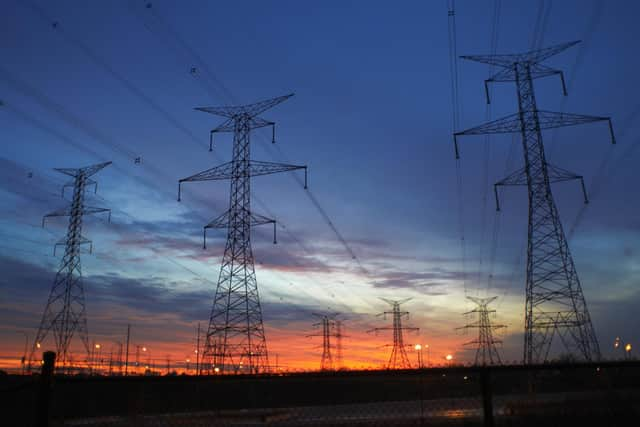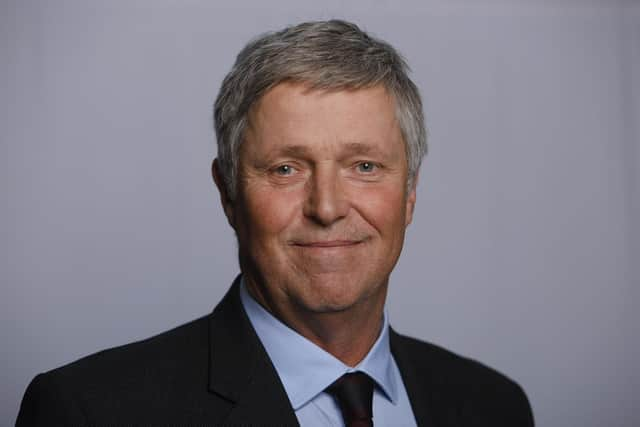Why map is needed to show future sites for power lines and pylons across Scotland amid calls for rural locations to be charged less
Other recommendations include the creation of a national map that shows what new infrastructure like power lines and pylons will need to be built and where they would be sited, helping members of the public understand the scale of works required and how it will affect them.
The calls come in a new report on Scotland’s energy infrastructure and its readiness for the shift to large-scale electrification, produced by Holyrood’s cross-party net zero, energy and transport committee.
Advertisement
Hide AdAdvertisement
Hide AdThe existing national grid is not capable of accommodating the level of renewable energy that will need to come online to power the likes of electric vehicles and low-carbon home heating in the future, so massive upgrades will be required to increase capacity.
This includes installing new power lines, pylons and cabling, as well as commissioning more offshore and onshore wind farms, tidal, wave and solar schemes.
Energy developments are charged higher connection fees the further away from urban centres they are located, so the most remote schemes pay the highest fees. This should change, according to the committee, because it could hamper progress in achieving neural climate emissions.
The MSPs have said official targets should be set for the likes of solar power to encourage investment in renewable schemes other than wind, and there must be a greater focus on energy storage solutions such as pumped hydro, batteries and ‘green’ hydrogen.


It also advised the planning process for infrastructure projects should be made more straightforward, to “streamline and simplify the process for all” and speed up delivery. But committee members stressed that affected communities must have their voices heard to ensure concerns are properly addressed.
The committee also stressed the necessity for improved relations between the UK and Scottish governments to ensure that good communication and co-ordination on energy takes place across the devolved-reserved divide.
Committee members say Scottish ministers should open up a “national conversation” to discuss what expanding grid capacity will mean for the people of Scotland and its various regions.
“Urgent and bold changes are needed to both increase the grid’s overall capacity and to speed up the rate of grid connection,” said committee convener Edward Mountain, Scottish Conservative MSP for the Highlands and Islands region.


Advertisement
Hide AdAdvertisement
Hide Ad“We are going to need these big infrastructure projects and what we can’t have is a planning system that is so slow in delivering them that it prevents it happening.
He said the system should be “more agile” at enabling decisions on electricity or renewables projects to be made quickly – without removing the rights of individuals and communities to influence the process.
“No one benefits from an uncertain, cumbersome planning process,” he said. “But it’s very clear in the report that we need to ensure local people are listened to.”
He added: “Electricity infrastructure has a vital role to play as we face the climate emergency. But unless urgent action is taken by governments on both sides of the border, regulators and operators alike, it may well become an opportunity lost.”
Comments
Want to join the conversation? Please or to comment on this article.